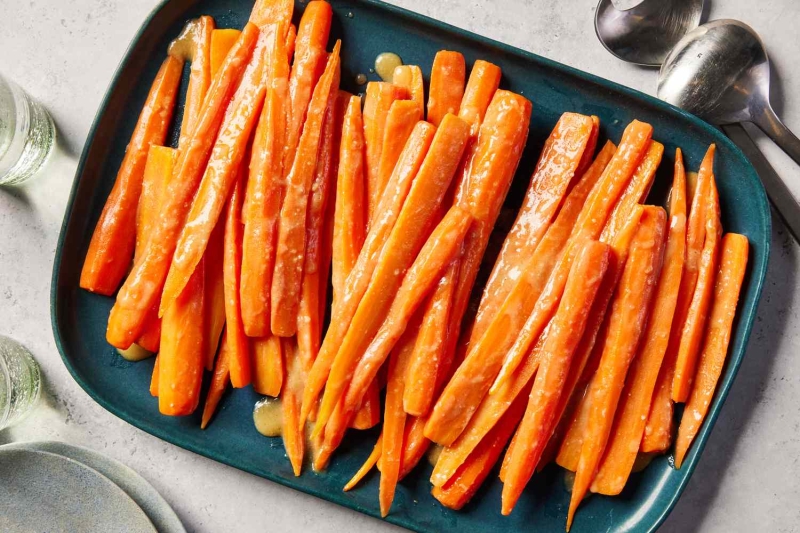Prep: 10 mins
Cook: 20 mins
Total: 30 mins
Servings: 6
This fool proof recipe for miso glazed carrots combines sweet and umami flavors in a honey-miso-rice vinegar reduction. Even those who dislike carrots will be converted. Me being one of them! I used to pick out the carrots on my plate but if you make glazed carrots like this recipe, you’ll find me picking at your plate to eat them.
The glaze has a nutty and buttery richness, with the vinegar providing gentle acidity to counterbalance the honey’s sweetness. Meanwhile the miso introduces a savory depth and helps thicken the glaze to ensure it coats the carrots perfectly.
Miso and Rice Vinegar Give This Dish a Huge Flavor Boost
Miso are soybeans fermented with salt and koji, which is a type of fungus. The fermentation process results in a thick paste with a complex flavor profile that ranges from savory and salty to slightly sweet. It’s the main ingredient in miso soup and a versatile ingredient for salting dishes with an added bonus of umami flavor.
Rice vinegar is a type of vinegar made from fermented rice and has a mild, slightly sweet flavor compared to white vinegar or apple cider vinegar. Rice vinegar is appreciated for its ability to add acidity and subtle tanginess without overpowering other flavors.
Why Blanching Makes This Dish Better
The carrots themselves are blanched until just tender, helping them maintain their natural sweetness. Blanching is a faster cooking method that also preserves the flavor, color, and texture of the carrots. Avoid using purple carrots if you’re concerned about the color bleeding into the sauce, altering the appearance of the dish.
The carrots can be blanched in advance and then sauteed just before serving. Be sure to pat the carrots dry after blanching, as excess water may dilute the glaze during sauteing. Top with sesame seeds or chopped almonds for texture and garnish with scallions.
Recipe Tips
- Plunging the carrots in an ice water bath after blanching helps stop the cooking process.
- Pat the carrots dry after blanching or the excess water will thin out the glaze when sauteeing.
Ingredients
-
1 1/2 pounds slender carrots, trimmed, peeled, and halved lengthwise
-
3 tablespoons unsalted butter
-
3 tablespoons honey
-
2 tablespoons white miso
-
2 tablespoons rice vinegar
-
Fine salt, to taste
Steps to Make It
-
Gather the ingredients.
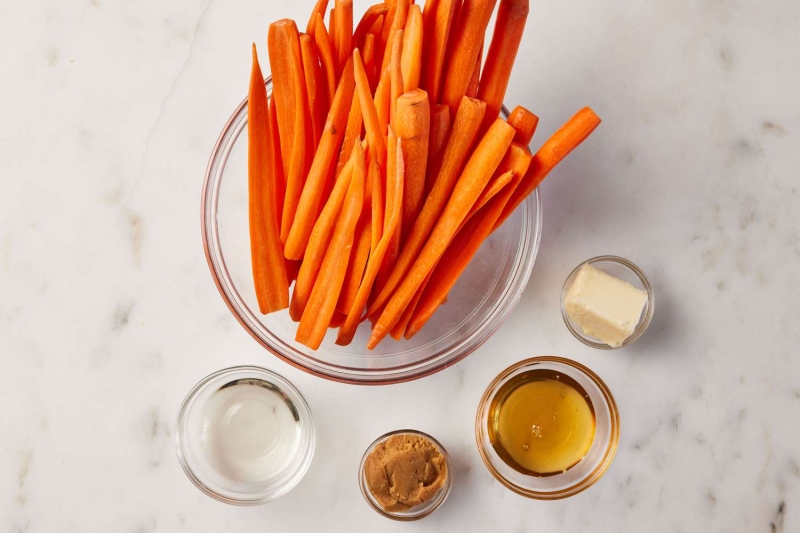
-
Bring a large pot of well-salted water to a boil over medium-high. Place a large bowl of ice water near the stovetop.
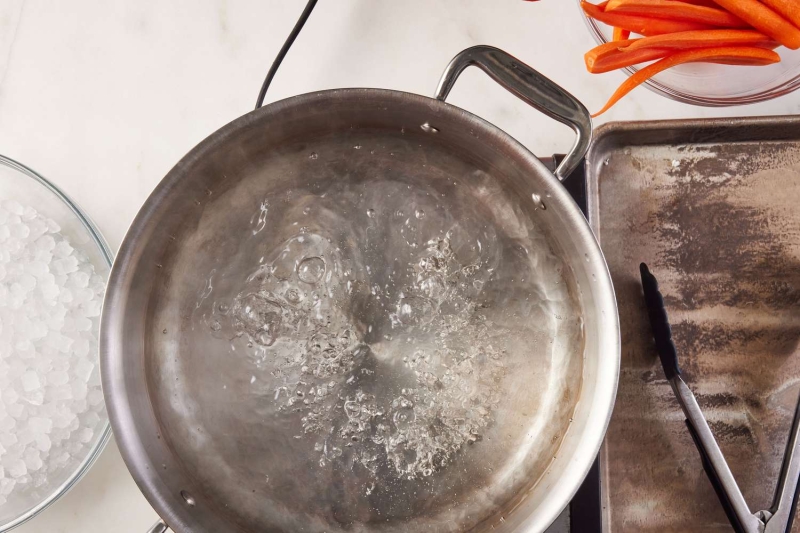
-
Add 1 1/2 pounds slender carrots, trimmed, peeled, and halved lengthwise to the boiling water and cook, undisturbed, until almost crisp-tender, 2 to 5 minutes. Drain the carrots thoroughly
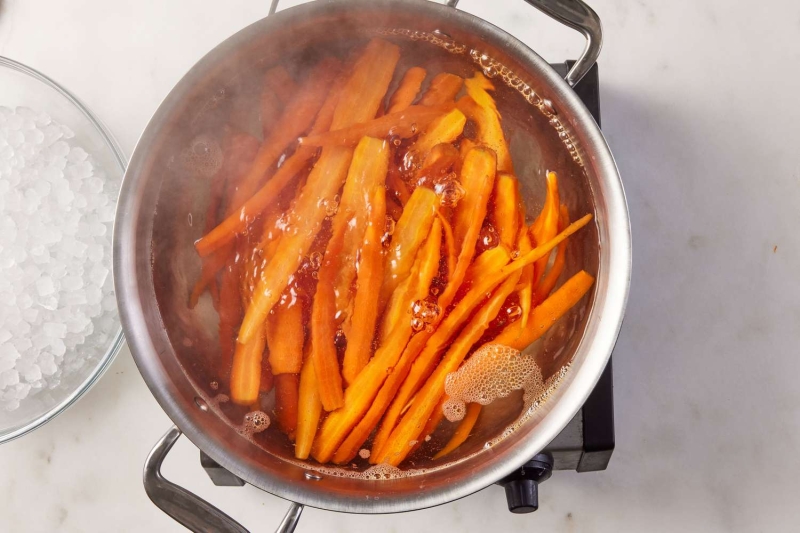
-
Transfer the carrots to the ice water and let stand until cool, about 2 minutes. Drain the carrots well and pat dry with paper towels.
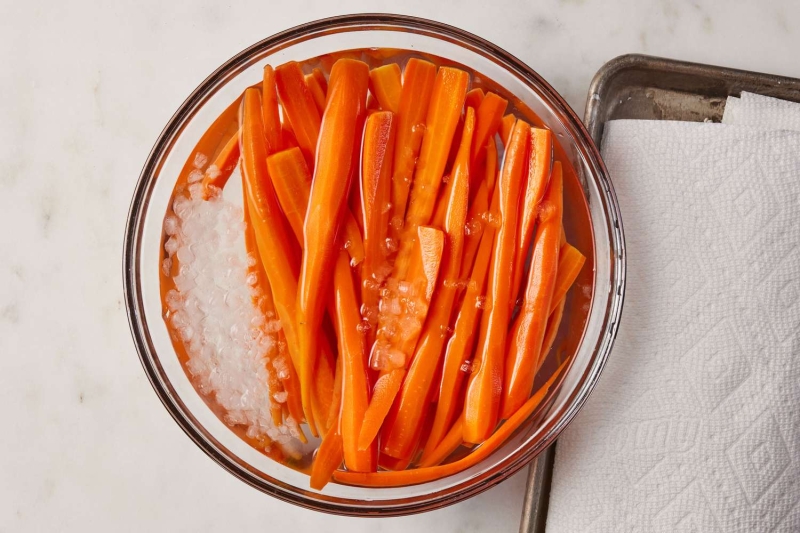
-
Melt 3 tablespoons unsalted butter in a large skillet over medium. Cook, whisking frequently, until the butter is browned and nutty in aroma, 1 to 3 minutes.
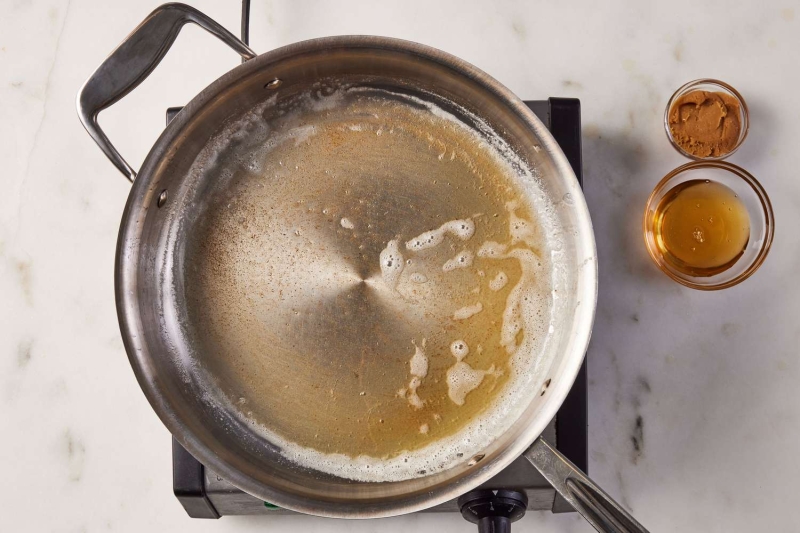
-
Carefully whisk in 3 tablespoons honey, 2 tablespoons white miso, and 2 tablespoons rice vinegar until smooth
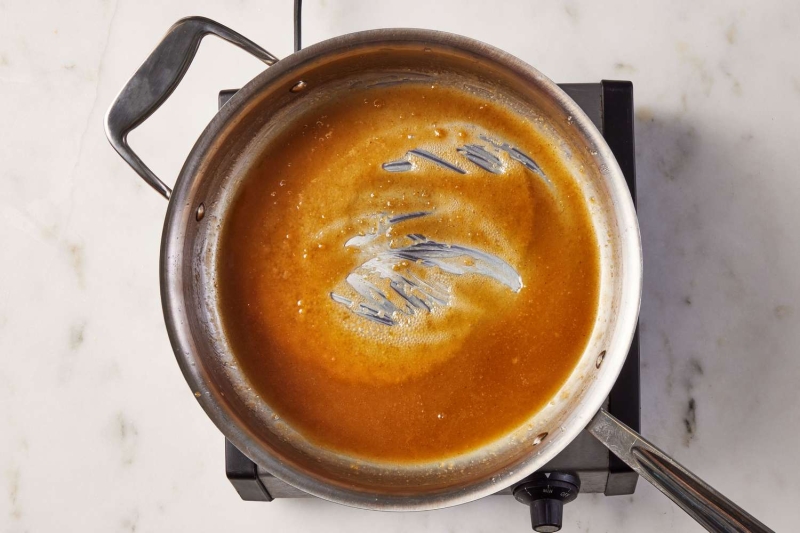
-
Add the carrots to the skillet. Increase the heat to medium-high and cook, tossing frequently with tongs, until the carrots are just tender and the sauce is thickened and glossy, 2 to 3 minutes. Season with fine salt to taste. Serve immediately.
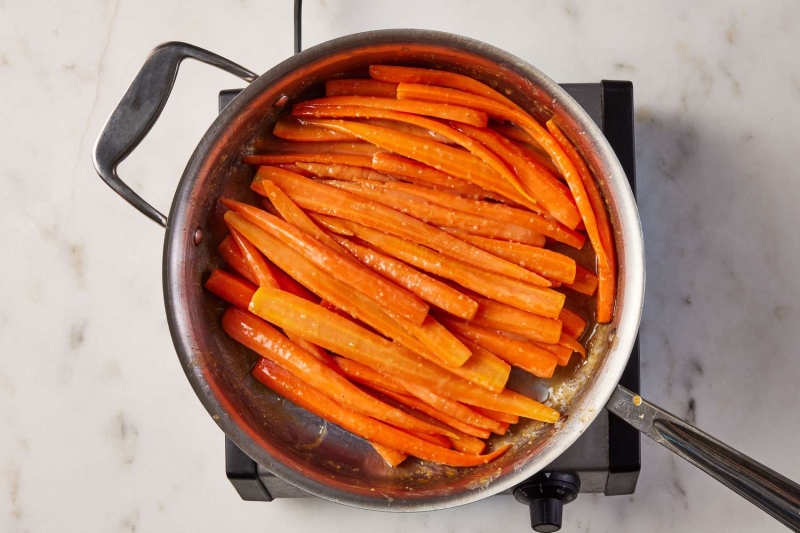
How To Store
Refrigerate leftover carrots in an airtight container for up to 5 days.
Feeling Adventurous? Try This:
- Garnish with sesame seeds or chopped toasted almonds for a bit of nutty flavor. Or drizzle the carrots very lightly with toasted sesame oil.
- Garnish with scallions for an aromatic addition.
| Nutrition Facts | |
|---|---|
| Servings: 6 | |
| Amount per serving | |
| Calories | 135 |
| % Daily Value* | |
| Total Fat 6g | 8% |
| Saturated Fat 4g | 18% |
| Cholesterol 15mg | 5% |
| Sodium 376mg | 16% |
| Total Carbohydrate 19g | 7% |
| Dietary Fiber 4g | 13% |
| Total Sugars 13g | |
| Protein 2g | |
| Vitamin C 4mg | 21% |
| Calcium 40mg | 3% |
| Iron 1mg | 3% |
| Potassium 286mg | 6% |
| *The % Daily Value (DV) tells you how much a nutrient in a food serving contributes to a daily diet. 2,000 calories a day is used for general nutrition advice. | |
